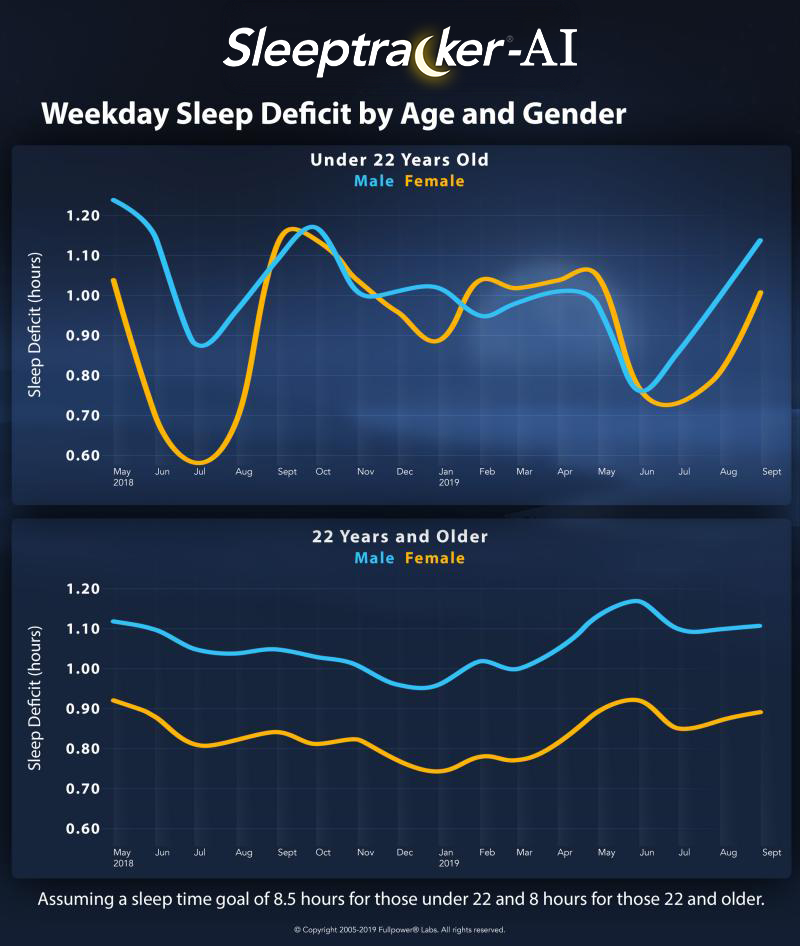Weekday Sleep Deficit by Age and Gender
We all live in a sleep-deprived society, regardless of age. In the graphic below, we studied sleep deficits from Fullpower’s PSG-level Sleeptracker AI platform. Of course, we should all sleep longer, but the reality of modern life is that we only have so much of a “sleep budget” given the constraints of family, work, social media, etc. Therefore, a complementary focus is on the quality of sleep: Improving sleep quality for better sleep is important. For that purpose, bedding, mattress quality, respiratory environment, and temperature control are very important as some of us sleep hot (mostly males) and some of us want to be warmer. All of the above are potentially big contributors to sleep quality, or what we know as restful sleep.
Of note here, women typically average less of a sleep deficit than males.
This plot assumes a target sleep time of 8.5 hours for those under 22 and 8 hours for those above 22. In line with recommendations from the National Sleep Foundation: sleepfoundation.org/articles/how-much-sleep-do-we-really-need. It’s “conservative” for those under 22 meaning you could increase it and show even more of a deficit for that age group (just shifts the y-axis labels).
